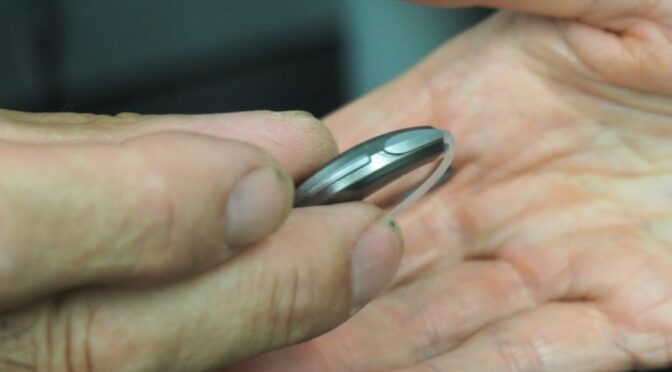In the United States alone, it was estimated that over 48.1 million people had bilateral or unilateral hearing loss between 2001 and 2008. In short, there are millions of Americans that have some sort of hearing loss that could benefit from hearing amplifiers, in-ear hearing aids, or some other sort of hearing device or tool.
At Platinum Hearing Aids, your Detroit-area audiologists, we understand the frustration that you might experience on a day to day basis if you are one of the millions of Americans with hearing impairments. Because of this, we offer a variety of diagnostic and corrective hearing services. If you believe that you or a loved one is affected by hearing impairment, we urge you to contact us today to schedule an appointment.
While there are many different hearing devices that can be used to correct or amplify hearing in an individual with hearing loss, one of the most common types of hearing aids that we are asked about are digital hearing aids. But how can you know if a digital hearing aid is the right hearing device for you? Continue reading to find out!
What Is a Digital Hearing Aid?
A digital hearing aid is extremely similar to an analog hearing aid — with the main difference being the amplifier component. An analog amplifier is designed to increase the volume of specific sound frequencies — usually between 2,000 and 8,000 Hz. Digital hearing aids, however, are much more complex.
Digital hearing aids are essentially tiny, powerful computers that convert sound waves into digital code. The code is then analyzed before the sound is sent to your ears. Because of the sophistication involved in digital hearing aid technology, digital hearing aids are extremely efficient in clearing background noise and reducing feedback while focusing on the sounds and noises that you need to be hearing. Because of this, digital hearing aids are often considered to be the clearest-sounding hearing aids that can operate the most efficiently in the widest range of listening environments.
Digital Hearing Aids Contain:
- A Microphone – The component responsible for picking up the sound.
- An Amplifier – The component that makes the sound louder and clearer.
- A Receiver – The “speaker” that creates the sound that you hear.
- A Battery – The power source of your hearing aid.
Is a Digital Hearing Aid Right for Me?
Oftentimes, people who are experiencing hearing issues rely on the internet to tell them whether or not they need hearing aids — as well as what type of hearing aid would be best for them. In reality, it is simply not that simple. Your auditory system is extremely complex, and there is no one-size-fits-all solution for people who have hearing loss. Because of this, there are a few things that you should do before you buy a digital hearing aid.
See Your General Physician
When it comes to hearing loss, the solution is not always the use of a hearing device like a digital hearing aid. Instead, the loss of hearing can sometimes be a correctable issue. Seeing your general care provider will help to rule out preventable hearing issues like earwax buildup or an ear infection. If they can’t diagnose a preventable issue, they may refer you to an audiologist for further testing.
Seek a Referral to a Reputable Audiologist
The first thing that anyone should do when they notice changes in their ability to hear is to schedule an appointment with their local audiologist. If you live in the Detroit-area, we strongly suggest that you schedule an appointment with Dr. Seymour or Dr. Pinnock, here at Platinum Hearing Aids. In doing so, you can learn more about your unique hearing needs and what hearing device might be the best solution.
Ask About a Trial Period
When you see your audiologist, here at Platinum Hearing Aids, it is important to ask if there is a trial period for digital hearing aids available. If they believe that digital hearing aids are right for you, they can refer you to reputable brands that have, or may not have a trial period.
Plan for The Expense
While hearing aids are often a necessary hearing device for someone with hearing loss, they can also be rather expensive. Be sure to contact your audiologist to discuss the cost of digital hearing aids and other hearing devices. Your audiologist will be able to inform you of out-of-pocket costs, as well as what the cost of the hearing device might be after insurance.
Schedule Your Appointment Today!
To answer your question — the best way to tell whether or not a digital hearing aid is the right hearing device for you is to consult your local Detroit audiologists at Platinum Hearing Aids. So what are you waiting for? Request an appointment with our experienced team today.







